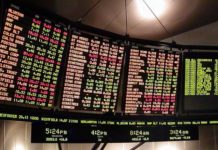Supply and demand mismatches could become the norm in the SSD market as suppliers grapple with an increasingly volatile market, analysts at TrendForce have predicted.
The Asia-Pac focused research firm reported “significantly boosted demand for enterprise SSDs” in the second quarter, as the market was driven by the ramp-up on NVIDIA’s Blackwell platform and surging general server deployments by North American CSPs.
Revenue across the top five brands jumped 12.7 percent quarter on quarter, TrendForce said, topping $5.1bn.
This was despite shortages of DDR4 and “extended lead times for controller IC substrates [which] created board supply constraints”, causing knock-one effects in the market.
Samsung dominated the market, with revenues of $1.9bn, boosted by “broad adoption in North America and insulation from DDR4 shortages”. SK Group saw surging demand for high capacity SSDs, and strong American CSP orders, boosting revenue 47.1 percent on the quarter to $1.46bn.
Micron suffered a 7.9 percent quarter on quarter drop to $780m in revenues but maintained its bronze spot. However, TrendForce noted that “delays in validation and ramp-up of its large-capacity products may constrain its growth in the second half of the year. Kioxia’s revenues grew 32.5 percent on the quarter to $750m, while SanDisk’s revenues slipped 8.2 percent to £$210m.
While the make up of the top five was stable, TrendForce predicted a more volatile future overall. AI workloads would drive rapid technology changes, it said, while vendors would have to balance new and legacy production capacity. Meanwhile, “the rise of Chinese suppliers” would challenge international suppliers.
This means, “Supply-demand mismatches may become the norm, making precise capacity planning and supply chain management critical for profitability.”
It didn’t mention another contributor to volatility, in the shape of Donald Trump’s tariff and semiconductor strategies. The chip industry is still getting its head round the fact that the White House is now Intel’s biggest shareholder.
The US president said last week that he would impose tariffs on chip makers that did not shift production to the US – or at least announce plans to do so. According to Reuters, Trump declared that “Chips and semiconductors – we will be putting tariffs on companies that aren’t coming in. We will be putting a tariff very shortly.”
While not giving details of timing or rates, he added the tariff would be “very substantial, not that high, but fairly substantial tariff.”
At the same time, a US appeals court rules last ruled week that many of Trump’s tariff moves were actually illegal, with the case expected to move to the US Supreme Court imminently.








